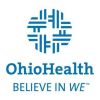Understanding the Signs of a Heart Attack: Key Symptoms and Early Detection
- What Are the Signs of a Heart Attack?
- Common Symptoms and Their Warning Signs
- Why Timely Detection Is Crucial for Survival
- What to Do in Case of a Heart Attack
- How to Protect Your Heart Health and Prevent Future Risks
What Are the Signs of a Heart Attack?
A heart attack occurs when blood flow to a part of the heart muscle becomes blocked, leading to potential damage. The signs of a heart attack can vary widely from one person to another, but there are several key symptoms that are common to many people. Understanding these signs is crucial for early intervention.
One of the primary signs of a heart attack is chest pain or discomfort. This may feel like pressure, tightness, or squeezing in the chest. Some people may experience a dull pain that radiates to the arms, jaw, back, neck, or stomach.
Other signs include shortness of breath, nausea, sweating, and dizziness. If you experience these symptoms, it's important to seek medical help immediately, as prompt treatment can significantly improve the outcome.
Common Symptoms and Their Warning Signs
While chest pain is the most well-known symptom of a heart attack, it's not always present. Many individuals, especially women, may experience more subtle symptoms. These can include lightheadedness, fatigue, or a feeling of indigestion. In some cases, people may feel a sense of impending doom or anxiety, which can be an early warning sign.
Case studies have shown that recognizing these less obvious symptoms can make a huge difference in survival rates. For instance, a study found that women often report experiencing unusual fatigue and nausea before having a heart attack, which can be easily mistaken for other conditions.
Why Timely Detection Is Crucial for Survival
Recognizing the early signs of a heart attack and acting quickly can save your life. Every minute counts when someone is having a heart attack, as the longer the heart muscle is deprived of oxygen, the greater the damage. In some cases, quick intervention can prevent the heart from sustaining permanent damage.
For example, a well-known case involved a man who felt unusual chest pain but ignored it for several hours. By the time he sought help, the damage to his heart was severe, and recovery took much longer. On the other hand, a woman who immediately sought help after feeling shortness of breath and mild chest discomfort received early treatment, which significantly improved her prognosis.
What to Do in Case of a Heart Attack
If you or someone you know is experiencing symptoms of a heart attack, it is crucial to act quickly. Call emergency services immediately. While waiting for help, if the person is conscious, chewing and swallowing an aspirin can help thin the blood and improve the chances of survival. However, do not delay seeking professional medical attention by trying to self-medicate.
Additionally, try to stay calm and rest in a seated position. Avoid any physical exertion that could put extra strain on the heart.
How to Protect Your Heart Health and Prevent Future Risks
Prevention is key when it comes to heart health. Regular exercise, a balanced diet rich in fruits, vegetables, and whole grains, and avoiding smoking can all help reduce the risk of heart disease. It is also important to monitor blood pressure, cholesterol levels, and blood sugar to stay on top of potential risk factors.
If you have a family history of heart disease or other risk factors, such as obesity or diabetes, it is essential to consult with a healthcare provider for regular check-ups and tailored advice on maintaining heart health.
For those looking to take proactive steps, products like heart-healthy supplements can complement a healthy lifestyle. These products are designed to support cardiovascular function, but always consult with a healthcare professional before incorporating them into your routine.




















